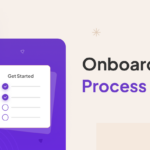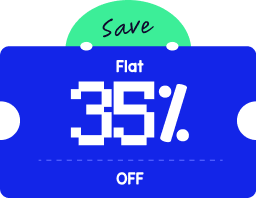Enterprise resource planning software has grown to become a necessity for all kinds of businesses. Today, small businesses are increasingly using ERP software in addition to top-tier corporations. That is the reason behind this writing on the ERP buyer’s guide. So that you can choose the right ERP software that suits your organization.
The reason behind the boom of ERP software’s use in businesses is straightforward. It helps grow business in many ways. ERP software helps you manage employees, accounting, and tasks in one place. This makes ERP software a clear choice for any type of business.
However, many ERP software programs fail to perform up to the mark. So it’s important to choose the ERP software that will grow your business and help you meet your goals.
In this ERP buyer’s guide, we will let you know why ERP software is necessary for modern business, what things to look for in ERP software, and we will also compare the features of some top ERP software.
What is ERP?

Though the exact abbreviation of ERP is “Enterprise Resource Planning“, it does not quite portray the whole range of applications that ERP has for a business. We can define ERP better in this way:
ERP is a business process management that helps your business with accounting, project management, customer relation management, human resource activities, and more.
ERP software can reduce huge bundles of paperwork and offer great convenience at every level of your business process.
Why do you need an ERP software?

We talked about how ERP software can have a great impact on business process management. But as a small or medium-scale business, do you need ERP software? It might even seem unnecessary to invest in ERP software, especially if you have a small business. Because then you will have less paperwork to do and fewer human resources to take care of.
But unfortunately, you are wrong!
ERP is invaluable to every business whether it is small or large. From being a fancy addition to large enterprises, it has become a necessity for every type of business.
According to FinancesOnline, ERP has helped around 95% of companies to improve their overall processes.
Apart from reducing a lot of paperwork, ERP also helps you with decision-making. You will get actionable insights like:
- Time spent on each task and project.
- Employee performance.
- User activity.
- Details report on projects, employee attendance, accounts, contacts, and more.
Let’s have a look at some of the crucial statistics about ERP software.

So, now that we know why it’s essential to have ERP software for your business. Let’s know what to consider before you go on to buy ERP software.
Pre considerations for buying and ERP software

It’s easy to get distracted while choosing ERP software for your business. Even when we’re trying to write an ERP buyer’s guide, we’re also overwhelmed with the sheer number of ERP solutions. There’s just so much of them. So, there should be some metrics to judge and choose the best one, right?
Luckily, there are!
Below are some things that you should consider while choosing ERP software.
- Make sure the product has a mix of value and offer.
- Find ERP software that covers most parts of your business process.
- Calculate approximate ROI for several ERP software before deciding on one.
- Make sure the product you choose is intuitive so that it requires less training for your employees.
So these were some of the key things that you should keep in mind while considering an ERP software. ERP software are not as cheaper as you might like, so make sure you find the right balance between price and features.
Features to look for in an ERP software

ERP is all about simplifying your business process. A good ERP software covers as many aspects of your business as possible. There could be many features in ERP Software.
However, in this ERP buyer’s guide, we will talk about the major features that a good ERP software must have.
1. HRM
It is one of the most important modules of ERP software. HRM module of an ERP contains all the employee information. This includes their database, performance, payroll, attendance, leave. Overall an HRM module makes the employee management easy as pie.
It also lets you create different departments and levels for employees so that you can control which employees can access which information from their dashboard.
HR will also be able to share important announcements, send emails right from the dashboard.
2. CRM
The importance of CRM can not be denied. Especially, CRM or Customer Relationship Management is a part and parcel of the eCommerce business. This is because customer data is precious in online business and storing customer data is the main task of a CRM.
CRM helps manage your contacts (whether, they registered on your website, subscribed for a newsletter, or even commented on a blog post). A good CRM module should also have the option to segment your users depending on their life state on your website. This allows you to send them personalized emails, offer relevant discounts, and many more.
3. Accounting

The most complicated process of a business is accounting. The complexity of trial balance, ledger report, balance sheets, income statements can be handed over to the accounting module of an ERP software, and you can enjoy a peaceful sleep.
With an accounting module, you should be able to do the following –
- Keeping track of all your transaction,
- Generate invoice,
- Creating estimated payment,
- Manage taxes,
- Pay bill, reimbursements,
- Manage stocks and many more.
4. Project Manager
Last but not the least, a project manager is so important that we often use this as an standalone software. This is because of the impact it has on a business.
Your life as a business owner can be a lot easier with a good project manager module. Project manager lets you create projects, task lists, assign tasks to employees and most importantly monitor every single part of every project.
Managing large projects with a good project manager is so simple, that you can not go back to the manual project management ever again!
5. Inventory Management
Inventory Management is a time-consuming process if you do it in an analog way. However, with ERP software, this become one of the easiest things to manage.
Inventory management helps you manage your warehouse stocks efficiently. You can get to know information like which products are high in demand, which are slow in sales. This way, you can make procurement decisions easily.
6. Supply Chain Management
Supply Chain is a crucial part of any business. The Supply Chain feature of an ERP software helps you reduce bottleneck for production. It does this by forecasting demands earlier.
The supply chain gives you the chance to ramp up production or sales of a particular product that is likely to rise in demand.
Why should you choose a WordPress ERP?

A couple of different types of ERP is can be found. So, why should you use a web-based or more specifically WordPress-based ERP system?
Legit question and here’s the answer –
If your business is on the internet, there’s a good chance you’re using a WordPress website. After all, more than 35% of all the website in the world is powered by WordPress. And a WordPress-based ERP system can be integrated with WordPress websites like a charm!
Even if your business is not online, you’ll still find it easy to use a WordPress-based ERP system rather than offline ERP software. This is because of the mobility it offers. You can use the software on the go, from anywhere you want. All you need is a smart device and an internet connection.
With a WordPress-based ERP your possibilities are truly limitless!
Top ERP solutions compared

The more the merrier… well, in our case, that’s not the case in our ERP buyer’s guide! There are so many ERP solutions out there, that you’ll have a hard time choosing one. However, we thrive to make your life easier. So, here’s a feature comparison of some of the top ERP systems to clear your confusion!
| Features | WP ERP | SAP Business One | MS Dynamics AX | Oracle NetSuite | Acumetica | Sage | IQMS |
| HRM Module | Yes | Yes | Yes | Yes | Yes | Yes | Yes |
| Accounting Module | Yes | Yes | Yes | Yes | Yes | Yes | Yes |
| CRM Module | Yes | Yes | Yes | Yes | Yes | No | Yes |
| Project Manager | Yes | No | Yes | Yes | No | Yes | Yes |
| Inventory Management | Yes | Yes | Yes | Yes | Yes | Yes | Yes |
| Supply Chain Management | No | Yes | Yes | Yes | Yes | Yes | Yes |
| Extensions | Yes | Yes | Yes | Yes | Yes | Yes | Yes |
| Web-based | Yes | No | Yes | Yes | Yes | Yes | Yes |
| Runs on WordPress | Yes | No | No | No | No | No | No |
| Free Version | Yes | Yes | No | No | No | No | No |
As you can see from the table above, some of the ERP solutions are really close when it comes to features. However, if we take into account the usability and ease of use, WP ERP is simply outstanding. Your employees will require little to no training to get used to it. That is why it is the best ERP solution for small to medium scale organization.
Related: Top 10 Enterprise Resource Planning (ERP) Software To Consider
WP ERP: A powerful ERP solution

As you can see from the comparison above, WP ERP is miles ahead when it comes to an ERP system. WP ERP is a software that has all the important features like HRM, CRM, Accounts, and Project Manager.
Plus you can also enhance the power of WP ERP with many more nifty little extensions that you can find here.
As you can see, WP ERP left no stone unturned to offer you the best ERP system on the market. All these useful features of WP ERP come at a very low price. The pro version of WP ERP starts at just $9.99 per month. What’s more, you’ll also get a 14-day money-back guarantee if you don’t like the product! Sounds good?
Grow your business with a reliable ERP
ERP digitizes and reduces the steps for every task of business. This helps you get your job done in a very short period. Apart from increasing efficiency, ERP software also minimizes the chances of error.
Whether your target is to grow customers, increase sales, or better brand visibility, WP ERP will help you reach your goals much more faster.













